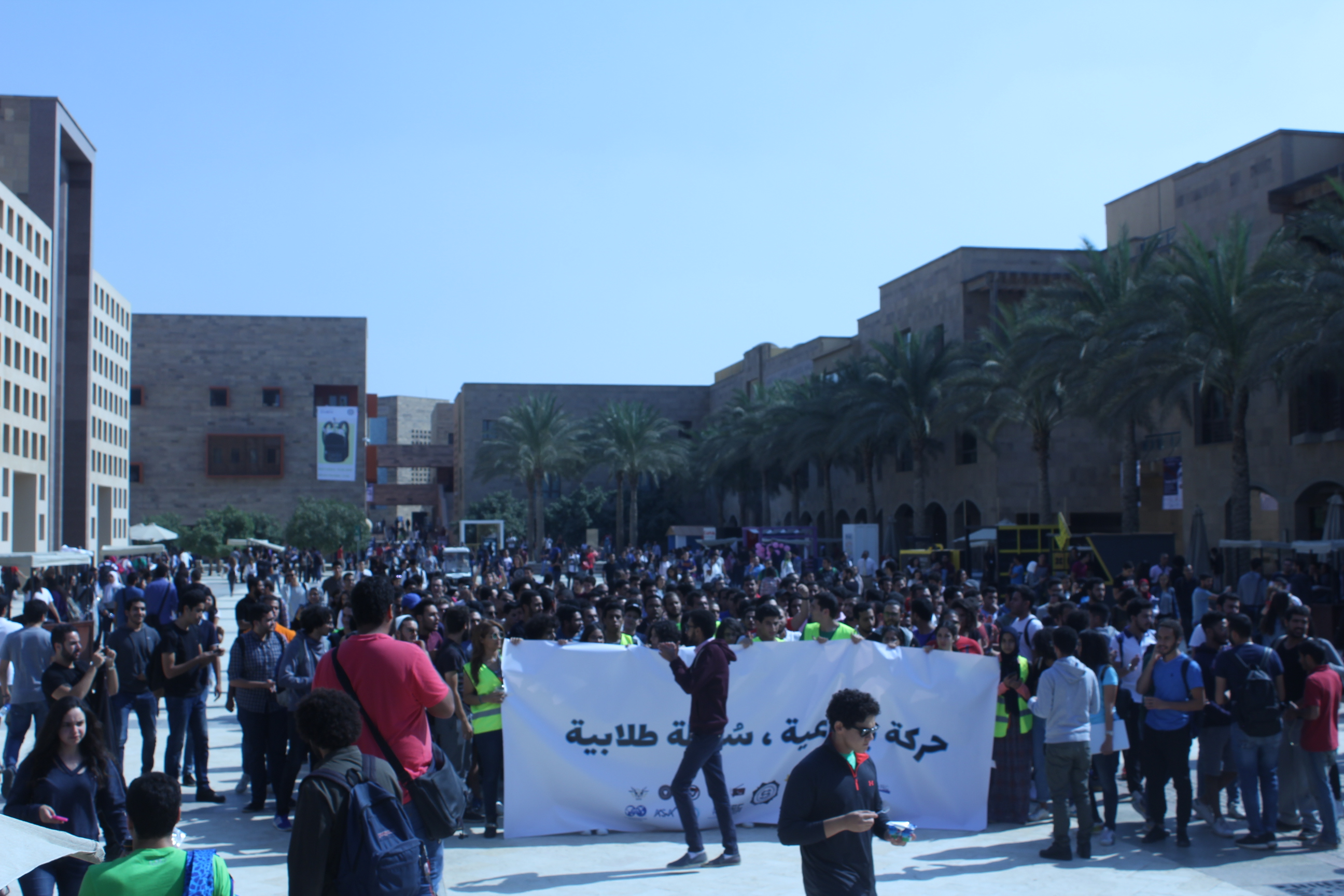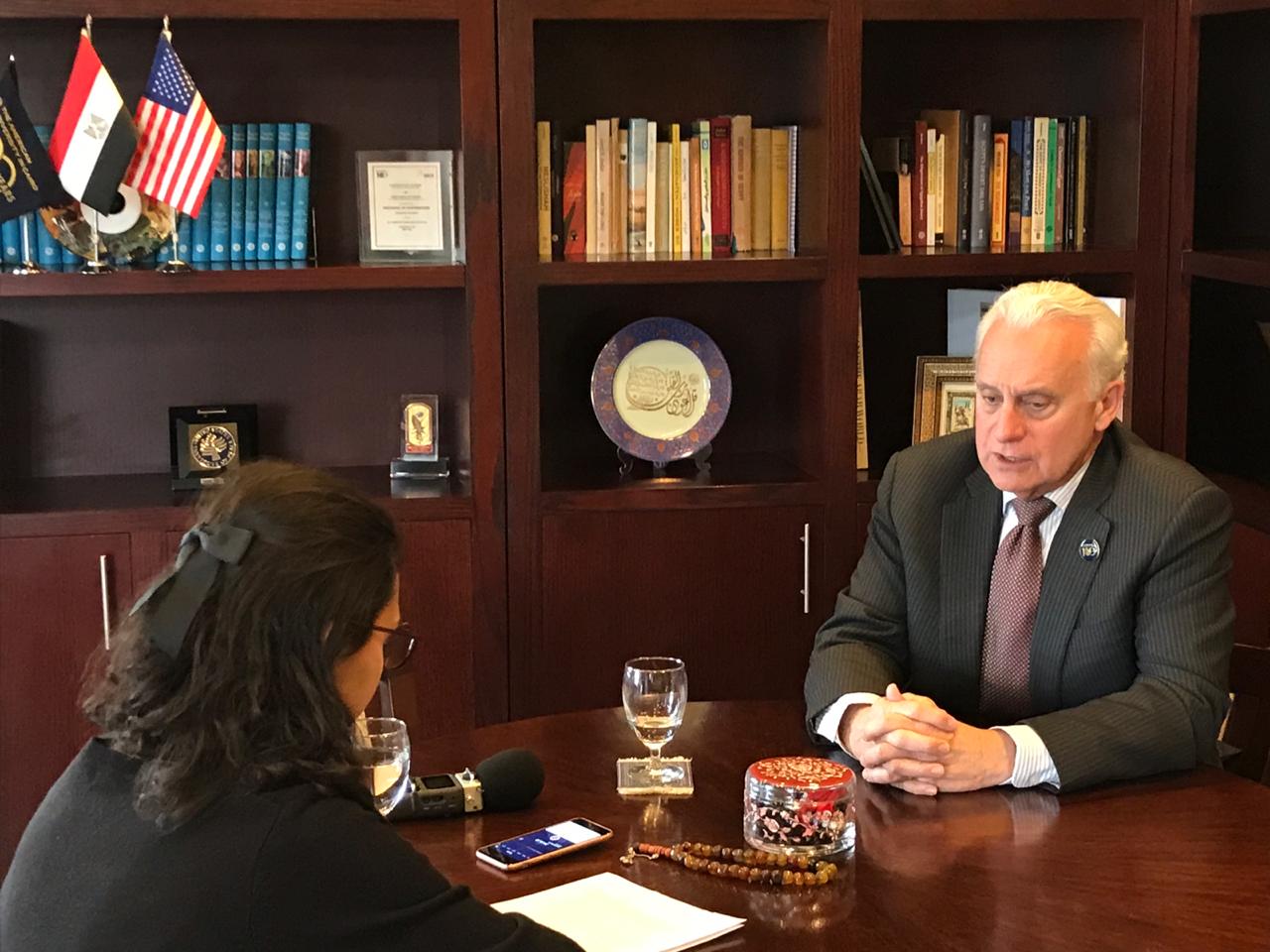European Union Delegation Discusses Human Rights in Egypt

@Amatory_Serage @MalakSekaly
Ten AUCians met with the European Union’s Representative for Human Rights Stavros Lambrindis at a roundtable discussion at the Nile Towers and debated a number of issues, some of which proved to be controversial.
“I am not here to lecture you about human rights, I am here to see them through your eyes. I want to listen much more than to talk today,” Lambrindis told the participants, which included students from other universities in Egypt.
Lambrindis said that talk of human rights is usually frowned upon because “they fight for the rights of the unpopular sects of the society.”
Human rights are fundamental to the protection of the weakest individuals in any given society, Lambrindis added.
It was made clear through the roundtable discussion that human rights cannot be isolated and must be integrated into state policies.
The debate began with an inquiry into the political participation of the youth in Egypt.
Lambrindis asked what the main reasons for the lack of engagement were, in spite of a highly charged political atmosphere.
Some attributed this to corruption within the bureaucracy that undermines the voice of the youth, even going so far to say that the votes of the youth count for little.
Others, however, maintained that it is our collective duty as Egyptians to give back to our country in any way possible.
While the discussion centered on the challenge of youth leaving Egypt in search of work opportunities abroad, debate became very heated when some students raised the issue of women’s rights and the rights of the lesbian, gay, bisexual and transgender (LGBT) community.
With regards to women’s rights, Lambrindis clarified that the empowerment of women is an essential step towards national progress and the ongoing efforts against terrorism.
He said that empowered women will lead to an empowered society that can effectively counter the ideological currents of extremism.
Student representatives from Al-Azhar University objected to discussing LGBT issues and said this would destroy Egyptian culture, while also spreading the AIDS virus.
However, some still said that it is in the interest of the state to refrain from discrimination and guarantee their fundamental human rights.
These issues were all framed within the context of national security, which was presented as opposing essential human rights.
The tension between the two is often subject to much heated debate.
While some advocated for the primacy of national security, others said that it is frequently invoked as an “umbrella of excuses the government uses to act as it pleases.”
The 10 students representing AUC were recommended by their professors who were contacted by the Office of the Dean of Students George Marquis.
“Through their stronger ability to question, AUC students add critical perspectives to discussions with students from other Egyptian institutions,” said Marquis.
After the conference was over, many students were happy that they had been given ample opportunity to express their views, while others were upset that they did not hear more from Lambrindis.
Some were nevertheless unsatisfied with the notable lack of representation.
Some students present did not feel as though they accurately reflected the positions of Egyptian youth.
It became clear that “homogenizing” the youth in this regard is problematic, because it does not account for the diversity of the youth in Egypt.



